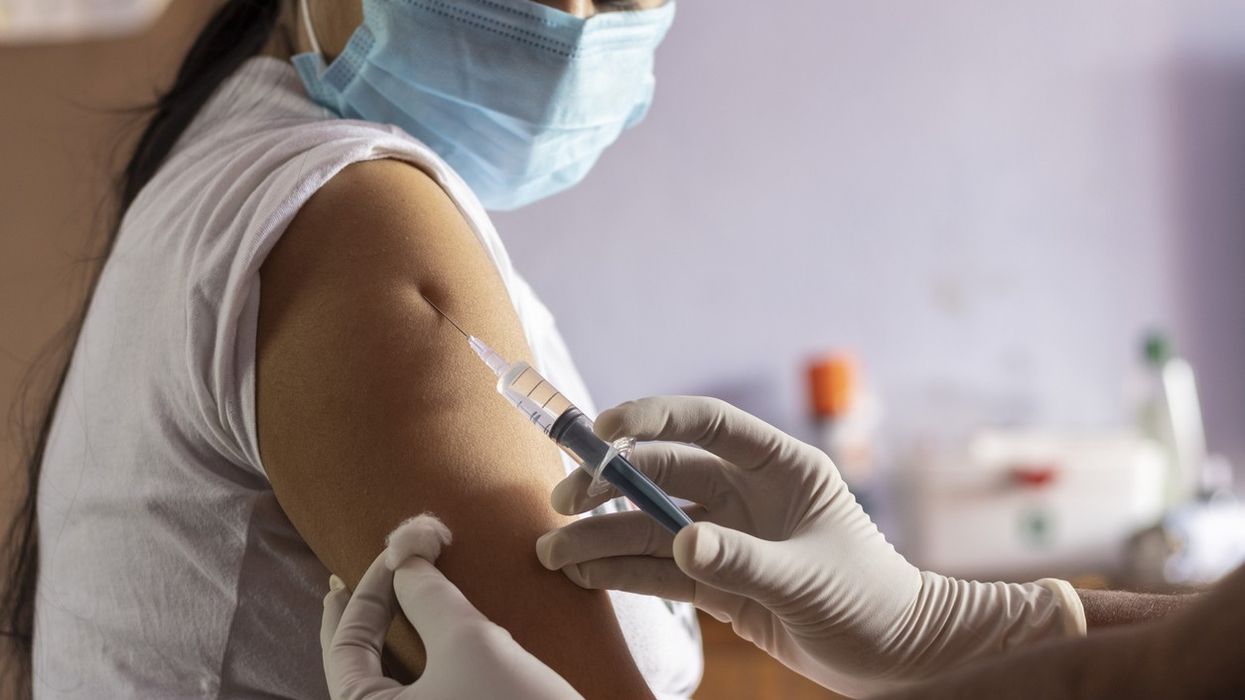Racism is the “fundamental cause” of Covid-19 vaccination hesitancy among ethnic minority groups, a new briefing has revealed, calling for policy intervention to “dismantle” the systems that cause and perpetuate inequities.
While hesitancy within the white population is just over 10 per cent for white Britons, the proportion is about 30 per cent for Indian communities and around 40 per cent for Pakistani and Bangladeshi communities. The proportion is more than half for the black population.
According to the briefing from the Runnymede Trust and the Centre on the Dynamics of Ethnicity of the University of Manchester, explanations for the lower vaccination rates in people from ethnic minority backgrounds focused on differences in the level of concern about side effects and a lack of trust in the development and efficacy of the vaccine.
The briefing argues that by the time people were deciding whether to have the vaccine, the conditions that created lower vaccination uptake among ethnic minority groups were already present.
Vaccine hesitancy is “misunderstood” and the opportunity to address inequities is “missed” by ignoring the impact of structural and institutional racism on vaccination rates, it said.
“The percentage of ethnic inequity in vaccine hesitancy explained by institutional factors varies across groups, explaining 41.6 per cent of the difference for Pakistani or Bangladeshi people, 20.2 per cent for Indian people, and 12.9 per cent for Black people,” it said.
Community-level factors explain more than 30 per cent of the ethnic inequity in vaccine hesitancy for Indian and Pakistani or Bangladeshi people and are the most important explanatory factors for the black group.
The demographic variables such as country of origin, partnership status, and presence of an older person in the household, explain a modest percentage of inequities of vaccine hesitancy among minoritised ethnic groups, ranging from 5.6 per cent for Pakistani or Bangladeshi people, to 18 per cent for Other ethnicities. Health outcomes are relatively unimportant in explaining vaccine hesitancy, explaining at most only 8.6 per cent of the difference (for the mixed ethnic group).
The paper said: Addressing the production and reproduction of ethnic inequities and dismantling the racist structures and systems that reproduce and maintain these inequities require changing laws, policies and practices in ways that produce sustained or fundamental change.
Professor Laia Bécares from King’s College London, who co-authored the report, said, “vaccine hesitancy puts the blame on individuals, instead of addressing the historical and ongoing racism that has contributed to the societal inequities that lead to ethnic inequalities in the distribution and uptake of vaccines.”
Racism ‘fundamental cause’ of Covid-19 vaccination hesitancy in ethnic minorities
New briefing calls for policy intervention to “dismantle� the systems that cause and perpetuate inequities




